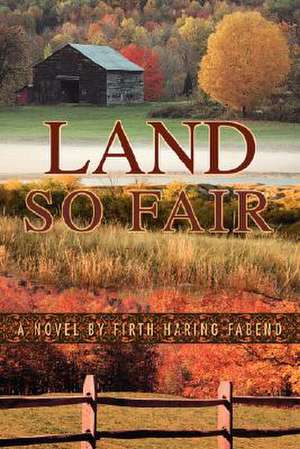"Land So Fair" opens in 1737 on a Hudson Valley farm, where the family's land, "sought, bought, cleared, planted, harvested, bequeathed, fought over, challenged, confiscated, and laced with bones and blood," is threatened anew each generation. Three strong-minded Dutch-American women, related to each other by marriage, deal with the privations of life in a wilderness community, the deaths of beloved family members, threats to their land by outside usurpers, and a dawning realization that slavery, once considered "necessary," is leading inexorably to tragedy. Troubles within the Dutch church, combined with violent uprisings by slaves, make life a test of endurance, physically, emotionally, and morally. As the struggle for independence from England versus loyalty to the Crown heats up, war erupts, and daily life takes on an ever-more desperate character. A fierce local "civil war" intensifies the looting, plundering, massacre, battles, and treason of the Revolution. In the end, the futility of war is clear when the English commander in chief acknowledges to George Washington in 1783 that the conflict should have ended with the American victory at Trenton seven years before, in 1776. "Fabend's evocative prose recreates a vivid New World. A poignant and gripping story, richly researched."
